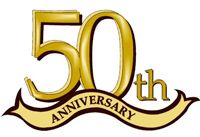Sharpen Your Teaching Skills
Session 1.01: How Master Teachers uses research tools in their classes
Moderator: Michele Henney, University of Oregon
Panelists:
Bob Allen, University of Utah
Lisa Kutcher, Colorado State University
Debbie Sanders, Washington State University – Vancouver
What are sources of datasets, practical accounting research tools (such as the FASB codification, IRS and other data sources) and cases? What are ways to identify and access those tools and their costs? How are the tools used in classes (including intermediate, tax, cost, international and auditing)? This session is devoted to identifying the myriad resources available to educators for classroom use.
Session 2.01: Bridging the Gap between Two-Year Colleges and the University
Moderator: Betty Chavis, California State University – Fullerton
Panelists:
Tita Gray, San Diego State University
Christine Kloezeman, Glendale Community College
Usha Ramanujam, Portland Community College
What challenges do students face when transitioning from two-year colleges to universities? How can two-year college faculty prepare students for the transition? Experienced instructors from two-year institutions focus on effective strategies for preparing students for the transition to four-year institutions.
Session 3.01: Teaching with Technology
Moderator and Presenter: Nancy Jones, San Diego State University
Panelists:
Gia Chevis, Baylor University
Thomas Francl, National University
This session focuses on low cost technologies that are easy to use but deliver big impact in the classroom. The session is led by a panel of instructors who have successfully implemented these technologies into their teaching, and who can advise on best practices and help you avoid common problems.
Session 4.01: Writing and Grading Assessment Materials
Moderator: Angela Woodland, Montana State University
Panelists:
Cassy Budd, Brigham Young University
Monte Swain, Brigham Young University
How does one write questions that test what we intend to test? Master teachers discuss effective assessment practices including multiple choice, essay, and paper assignments construction. They also offer ideas for efficient grading.
Session 5.01: Practical Ethics
Moderator: Anne Christensen, Montana State University
Panelists:
Jon Baumunk, JD, MSA, San Diego State University
Claire Latham, Washington State University
Jason Porter, University of South Dakota
How to develop a curriculum that helps students identify and voice their values? Master teachers discuss practical methods of including ethics in assignments and activities in a way that allows students to practice identifying and responding to ethical dilemmas.

